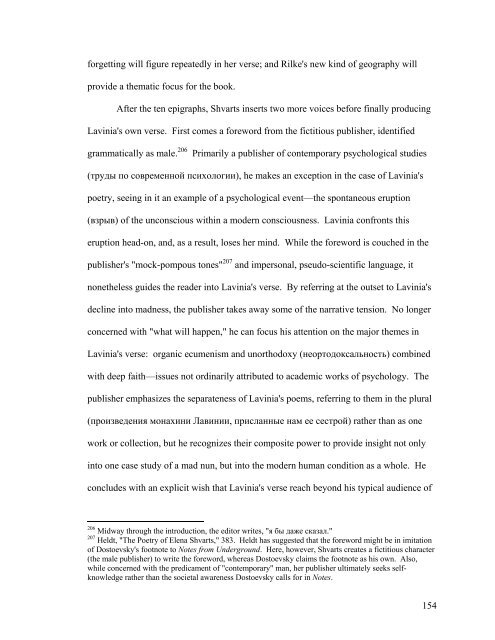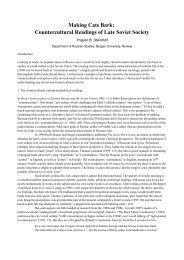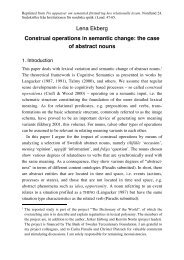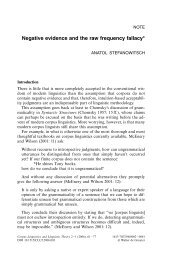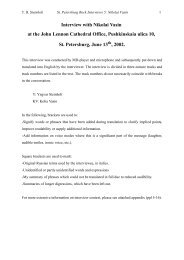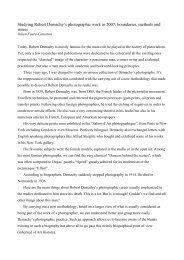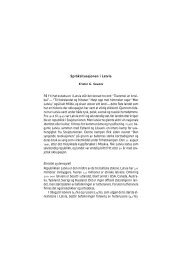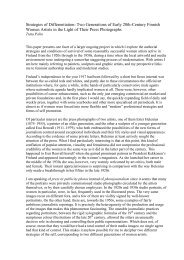THE BOOK OF POEMS IN TWENTIETH-CENTURY ... - TopReferat
THE BOOK OF POEMS IN TWENTIETH-CENTURY ... - TopReferat
THE BOOK OF POEMS IN TWENTIETH-CENTURY ... - TopReferat
Create successful ePaper yourself
Turn your PDF publications into a flip-book with our unique Google optimized e-Paper software.
forgetting will figure repeatedly in her verse; and Rilke's new kind of geography will<br />
provide a thematic focus for the book.<br />
After the ten epigraphs, Shvarts inserts two more voices before finally producing<br />
Lavinia's own verse. First comes a foreword from the fictitious publisher, identified<br />
grammatically as male. 206<br />
Primarily a publisher of contemporary psychological studies<br />
(труды по современной психологии), he makes an exception in the case of Lavinia's<br />
poetry, seeing in it an example of a psychological event—the spontaneous eruption<br />
(взрыв) of the unconscious within a modern consciousness. Lavinia confronts this<br />
eruption head-on, and, as a result, loses her mind. While the foreword is couched in the<br />
publisher's "mock-pompous tones" 207 and impersonal, pseudo-scientific language, it<br />
nonetheless guides the reader into Lavinia's verse. By referring at the outset to Lavinia's<br />
decline into madness, the publisher takes away some of the narrative tension. No longer<br />
concerned with "what will happen," he can focus his attention on the major themes in<br />
Lavinia's verse: organic ecumenism and unorthodoxy (неортодоксальность) combined<br />
with deep faith—issues not ordinarily attributed to academic works of psychology. The<br />
publisher emphasizes the separateness of Lavinia's poems, referring to them in the plural<br />
(произведения монахини Лавинии, присланные нам ее сестрой) rather than as one<br />
work or collection, but he recognizes their composite power to provide insight not only<br />
into one case study of a mad nun, but into the modern human condition as a whole. He<br />
concludes with an explicit wish that Lavinia's verse reach beyond his typical audience of<br />
206 Midway through the introduction, the editor writes, "я бы даже сказал."<br />
207 Heldt, "The Poetry of Elena Shvarts," 383. Heldt has suggested that the foreword might be in imitation<br />
of Dostoevsky's footnote to Notes from Underground. Here, however, Shvarts creates a fictitious character<br />
(the male publisher) to write the foreword, whereas Dostoevsky claims the footnote as his own. Also,<br />
while concerned with the predicament of "contemporary" man, her publisher ultimately seeks selfknowledge<br />
rather than the societal awareness Dostoevsky calls for in Notes.<br />
154


